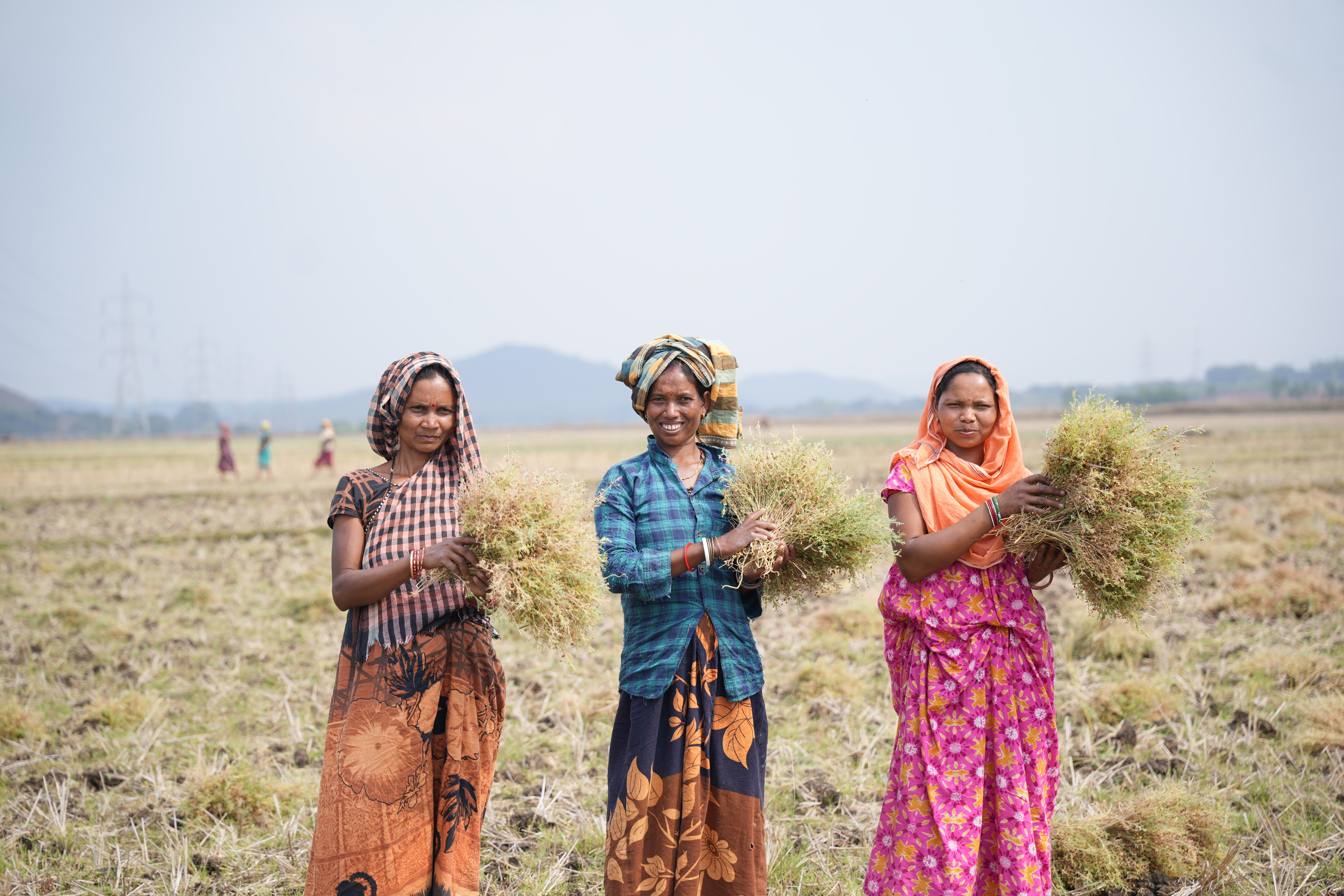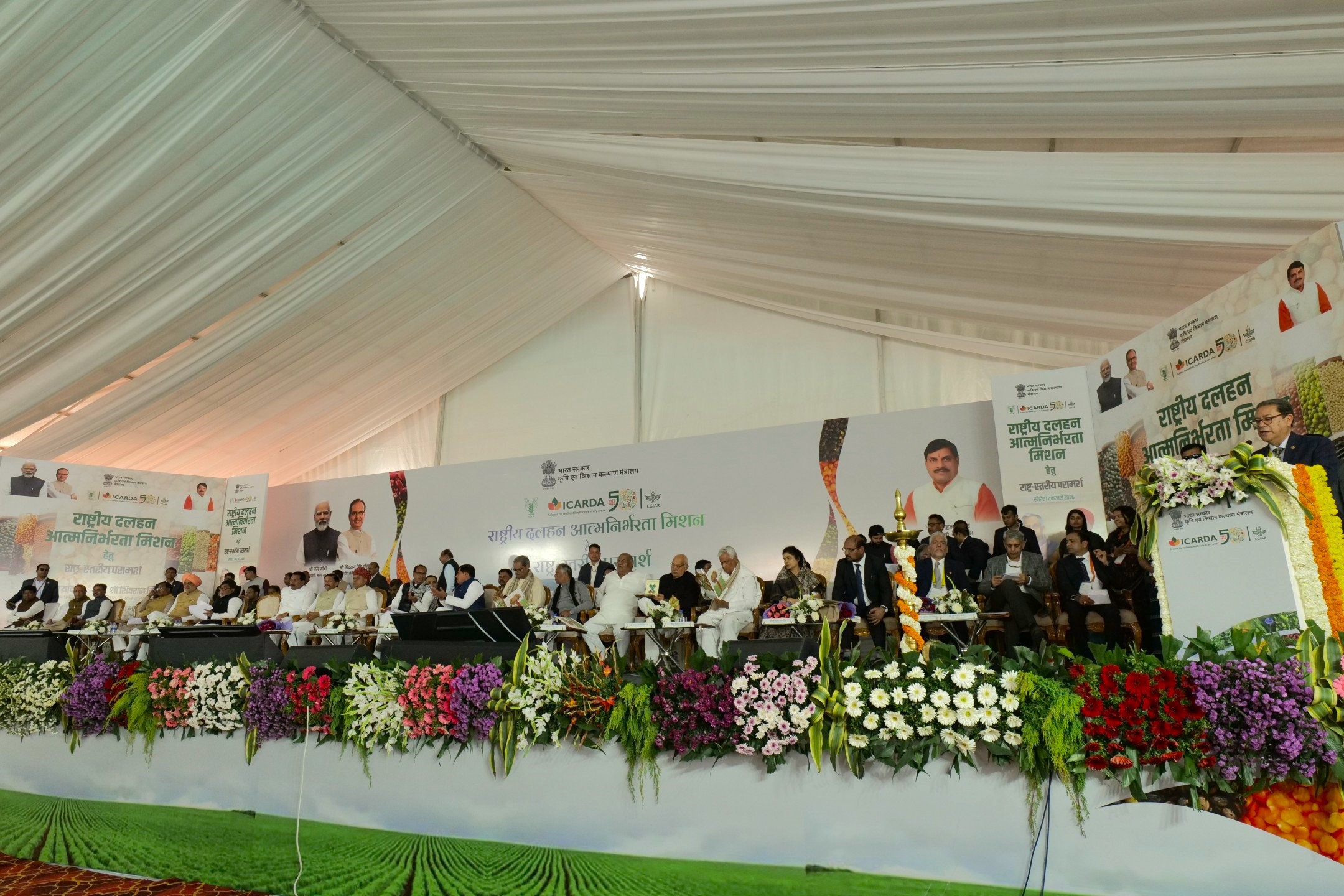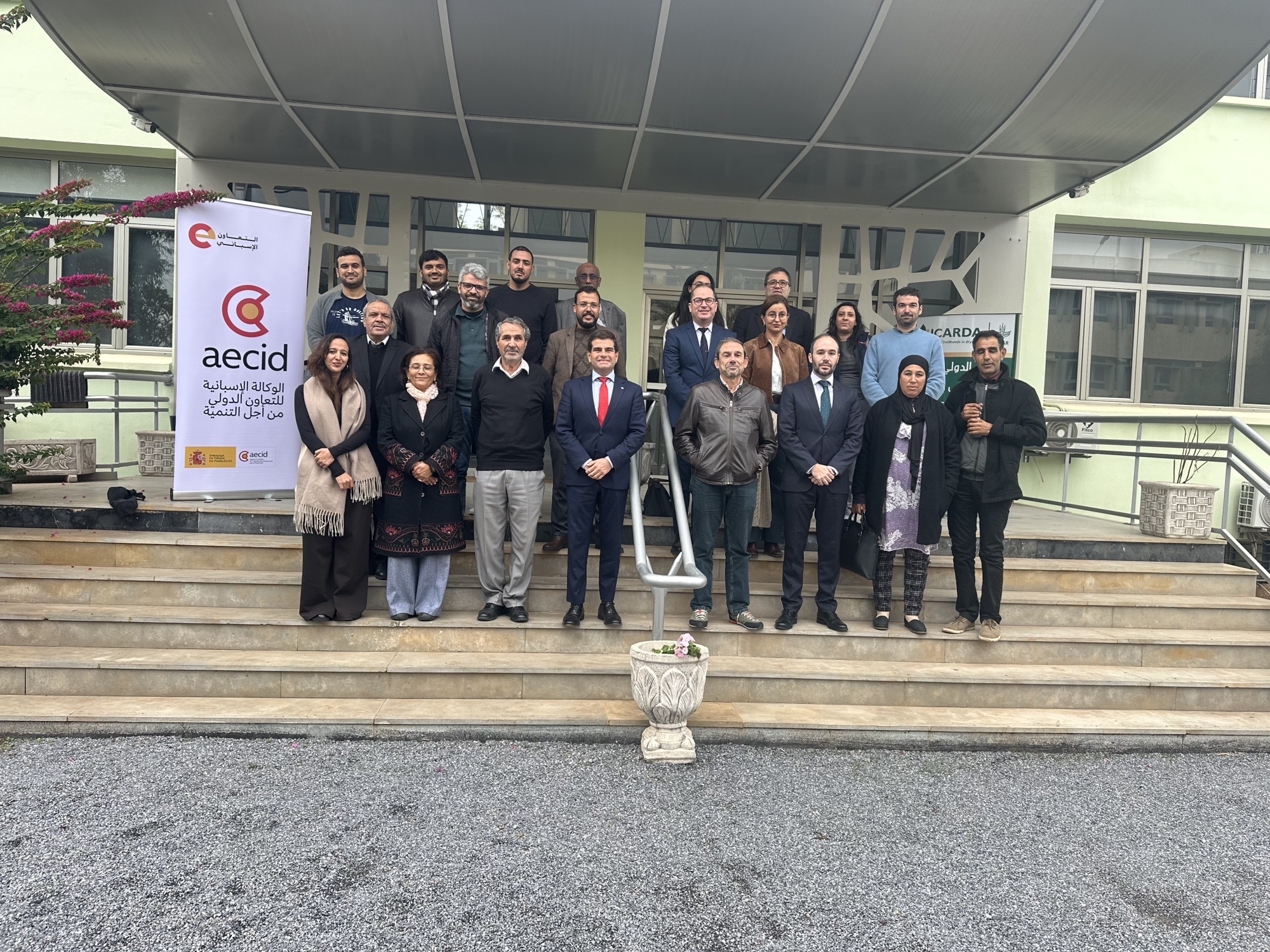The MountainHER project kicks off!
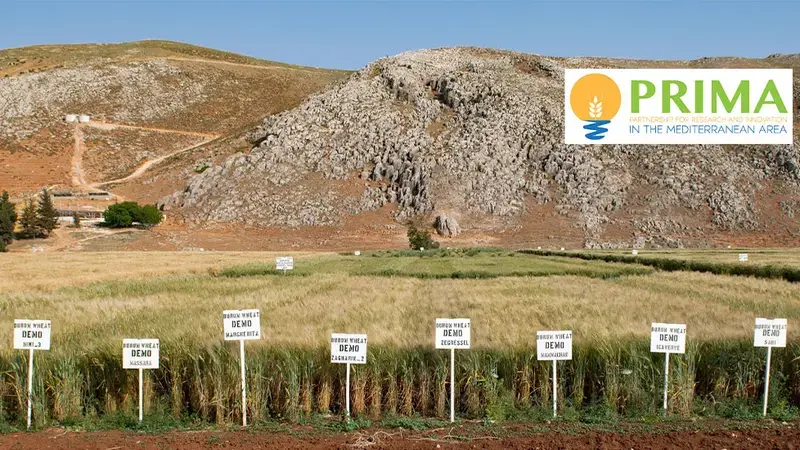
Rabat, Morocco, 20 September 2022 - Under the leadership of Dr Rachid Mrabet of INRA Morocco, experts drawn from international scientists, development agencies, and a private brewing company met virtually to launch the MountainHER project.
“INRA Morocco are key partners in several PRIMA and European projects, but this is the first time that a North African country is leading one, so it is a great honour for myself and INRA” said Dr Mrabet, “We have a very diverse team with a fantastic work relationship, and I am confident that together we can help women engagement in agricultural enterprise”.
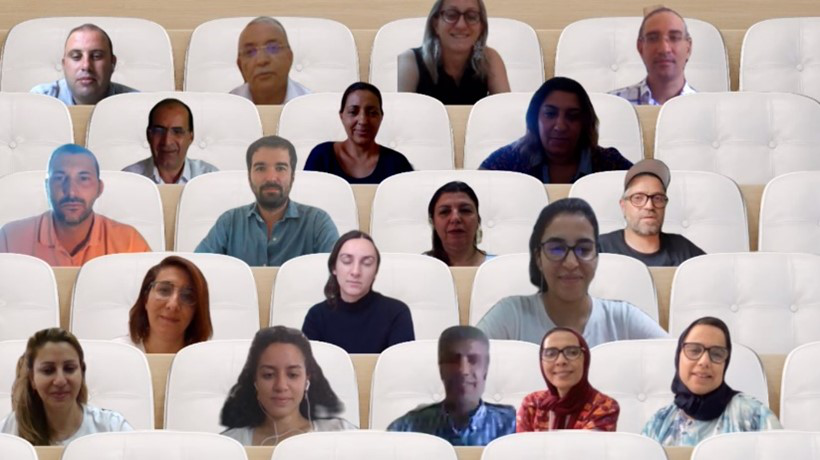
A 2.75M euro project financed by the PRIMA Foundation over three years, MountainHER aims to establish rural women as the true drivers for social and economic progress in remote mountain communities of Morocco, Algeria, Tunisia, Lebanon, Croatia, and Italy.
“Rural women are the natural centre of their communities, but social norms often restrain their full potential to benefit their communities,” said Hind Nejbah, the Morocco representative of Oxfam and leader of work package four under MountainHER. “Through this project we will explore in detail the governance system of rural women associations in six countries and try to identify social or legal practices that prevent women operating at their full potential, offering equal and advantageous conditions for all association members.
The project empowers women associations by developing very short value chains that generate and redistribute income, converting farm harvests into high value food and malt products.
“There is a growing demand by consumers for local and traditional foods” said Ilaria Mazzoli, who is leading the activities of Open Fields (https://www.openfields.it/en/) an Italian agency that specializes in bringing technologies to the farms: “We’ll help mountain communities to capitalize on these trends”.
The sale of traditional food can generate 10 to 100 times more income than the direct sale of harvested grains, but only if producers are properly connected to retailers and digital markets. To further strengthen this aspect, a consumer appreciation study will be conducted for different type of traditional foods to assess how to best help these cooperatives to meet the consumers' demands and therefore gain market shares with their products.
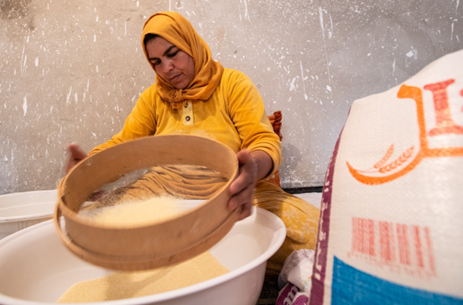
“The most important aspect of this project is the simplest one” said Filippo Bassi, co-lead of the project and an ICARDA scientist. “Many rural cooperatives convert industrially produced flours into food, rather than using local flours. That overlooks what their community can offer on their own doorstep. MountainHER provides training and tools to prioritise the purchase of local harvests by the associations.”
In exchange, MountainHer encourages farmers to follow sustainable agro-ecological practices, which respect the environment and generate higher prices for the better nutritional quality of the food produced with it.
“Agro-ecology is certainly a buzz word, but behind it there is a lot of good science to put in place and lots of support for local communities that is needed” said Nasreddine Louahdi, director of the ITGC station of Setif and co-lead of Work Package 3 (Pic 3) .
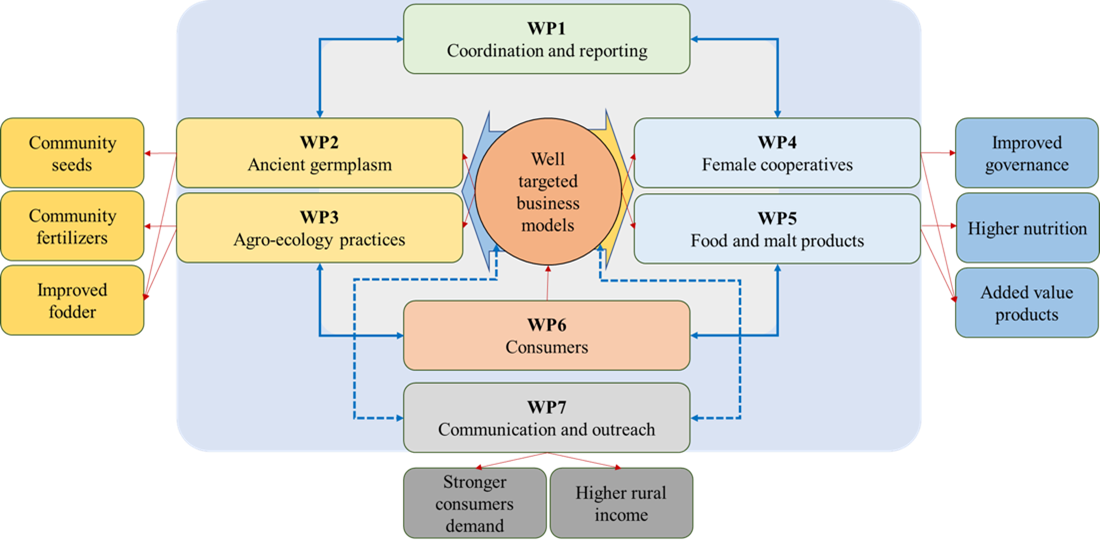
The MountainHER project will also promote ‘circular economies’ to favour the conversion of waste products into non synthetic fertilizers, while using the latest management approaches to ensure maximum profitability while reducing the carbon costs of farming.
“Women are front and center in community life, and this project celebrates and utilises this fact” says Rola El Amil, cereal pathologist and gender specialist at LARI: “All innovations that MountianHer will promote, such as management practices, technology, and new crop varieties, are first accepted and adopted by women”.
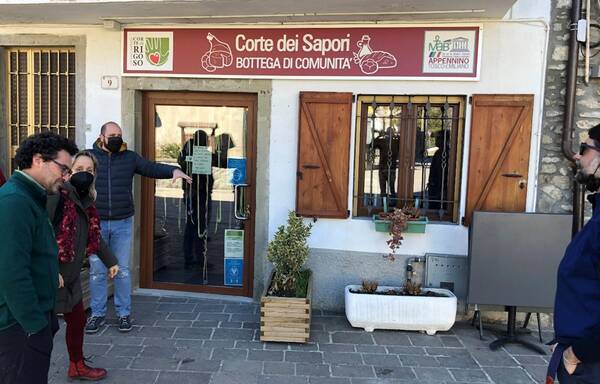
Barley and durum wheat are the two crops targeted by this project. Giorgio Setti is the owner of the Birrificio Emiliano, a private, award-winning micro-brewery: ”It is really interesting to discuss better beer making with scientists. Producing quality malt barley in mountain communities is challenging, but in my company, we love trying new things.” He continues with some pride: “I know we have the skills to transfer that green grass, clean air and fresh water feel of the mountains into brews worth buying. I hope the scientists help us produce good malt to make it with”.
“It is true that there is a market demand for local, healthy, and nutritious food, that is why it is fundamental that we analyse everything we produce within the project” said Dubravka Kolarić Zatezalo who leads the development agency PINS (www.pins-skrad.hr) in Croatia and is also responsible for work package 5: “ All food, malt, and raw products of MountainHER will be analysed for their nutritional content to help guide the cooperatives in the way the foods are produced, the farmers for the best practice to follow, and also to inform the consumers of the health benefits they would be purchasing.”
MountainHer takes a truly holistic path that intervenes along the whole value chain “from farm to fork” in six mountain communities, promoting social inclusion, generating employment opportunities, prompting income generation, and reducing the impact of farming on the environment.
“Telling our project story is an integral part of making it successful,” said Hajer Ben Ghanem, a geneticist at INRA Tunisia and leading communications in WP7. “The PRIMA reviewers who have evaluated our project idea liked the fact that we also proposed some novel outreach plans. I am particularly excited about the restaurant pop-up events that we will need to organize. Still, there are many other opportunities for foodies, retailers, and chefs to interact with us, so stay tuned!”.
“I am very proud of this project team. So many great women and men engaged. It is rare for such a gender balance in a science and agriculture project. More than 70% of the research activities are led by women”. Commented Dina Najjar, gender specialist at ICARDA. “and I speak for the whole team when I say that we are all looking forward to try the great foods that the associations will produce!”.
The MountainHER project has now officially launched. Some 44 measurable deliverables and 7 milestones need to be achieved in the next 36 months to reach the ground-breaking objective of changing the social and economic status of remote mountain communities.
Follow us on this link for tracking the project progression.

